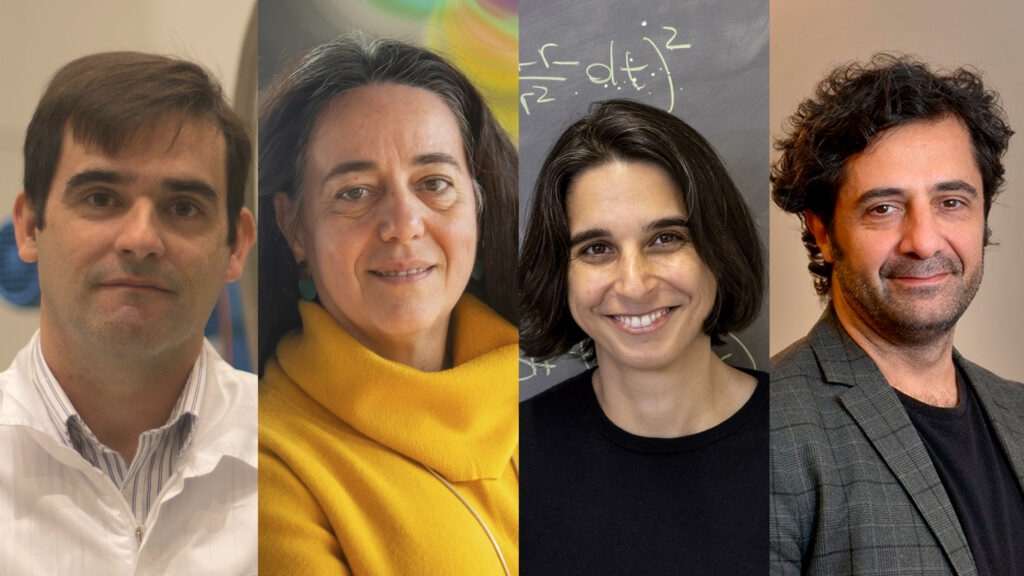The Instituto Galego de Física de Altas Enerxías (IGFAE) is organising the conference ‘A nautreza do espazo-tempo’ on Friday 13 September. This meeting, open to the general public, will bring together scientific and outreach referents who will construct a joint narrative about the birth of space-time, its dynamics, its intimate nature and its frontiers. The activity will take place at the Centro Galego de Arte Contemporánea (CGAC) from 17.45 hours. Admission will be free until full capacity is reached.
‘Since the beginning of the 20th century there have been fascinating advances in fundamental physics, which have provided answers to some of the mysteries about the origin of the universe, of everything we are and see. However, we still face challenges and mysteries that remain unanswered. In this meeting we want to delve into some of these great challenges, with the help of prestigious scientists, and to do so in an accessible and entertaining way for the general public,’ explain Riccardo Borsato and Jose Edelstein, IGFAE researchers and organisers of the meeting.
Ver esta publicación en Instagram
Leading experts in the study of space-time
The event will bring together in Santiago de Compostela four leading scientists in different areas of fundamental physics: José Alberto Rubiño: researcher at the Instituto de Astrofísica de Canarias, specialising in cosmology and the cosmic microwave background; Alicia Sintes, from the Universitat de les Illes Balears, expert in the study of gravitational waves and member of the LIGO scientific collaboration; Alejandra Castro, physicist at the University of Cambridge, where she studies how to unify the laws of space-time and the cosmic microwave background: researcher at the University of Cambridge, where she studies how to unify the laws and principles of gravity and quantum mechanics; and Gastón Giribet, researcher at New York University, who researches string theory and black holes.
Each of them will give a talk lasting about 30 minutes. At the end of the talks, and to close the event, there will be a round table to discuss the topics presented, also opening the debate to the public. The meeting will close with an aperitif shared by attendees and speakers.
The quest to understand the universe
Research into the creation and evolution of space-time is searching for answers to the essential questions about the beginning of everything around us, something humanity has been pondering for millennia. In recent years, fundamental physics has made huge steps, revealing some of the fundamental laws of the universe and combining space and time into a single entity thanks to Einstein’s theory of relativity. This theory has also shown that there are previously unknown players in the cosmos, such as black holes, objects so compact that not even light can escape from them. In addition, we learn that the universe can communicate with us through new means, such as gravitational waves, first detected less than a decade ago.
Alongside these discoveries, physics has asked new questions that would have been unthinkable a few decades ago: How is it possible to reconcile the laws of gravity with quantum mechanics? What happens inside a black hole? What is dark energy, that mysterious mechanism that accelerates the expansion of the universe? And what can we learn from the gravitational wave signals we receive from the deepest reaches of the cosmos? This meeting will help to understand fundamental concepts, to go beyond the questions we asked in our childhood, and to appreciate the more modern challenges facing scientists today.
This activity is part of the ‘Quantum Leap’ cycle, a programme of the Galician Supercomputing Centre (CESGA) and the Galician Centre of Contemporary Art (CGAC), in which the IGFAE also collaborates.
